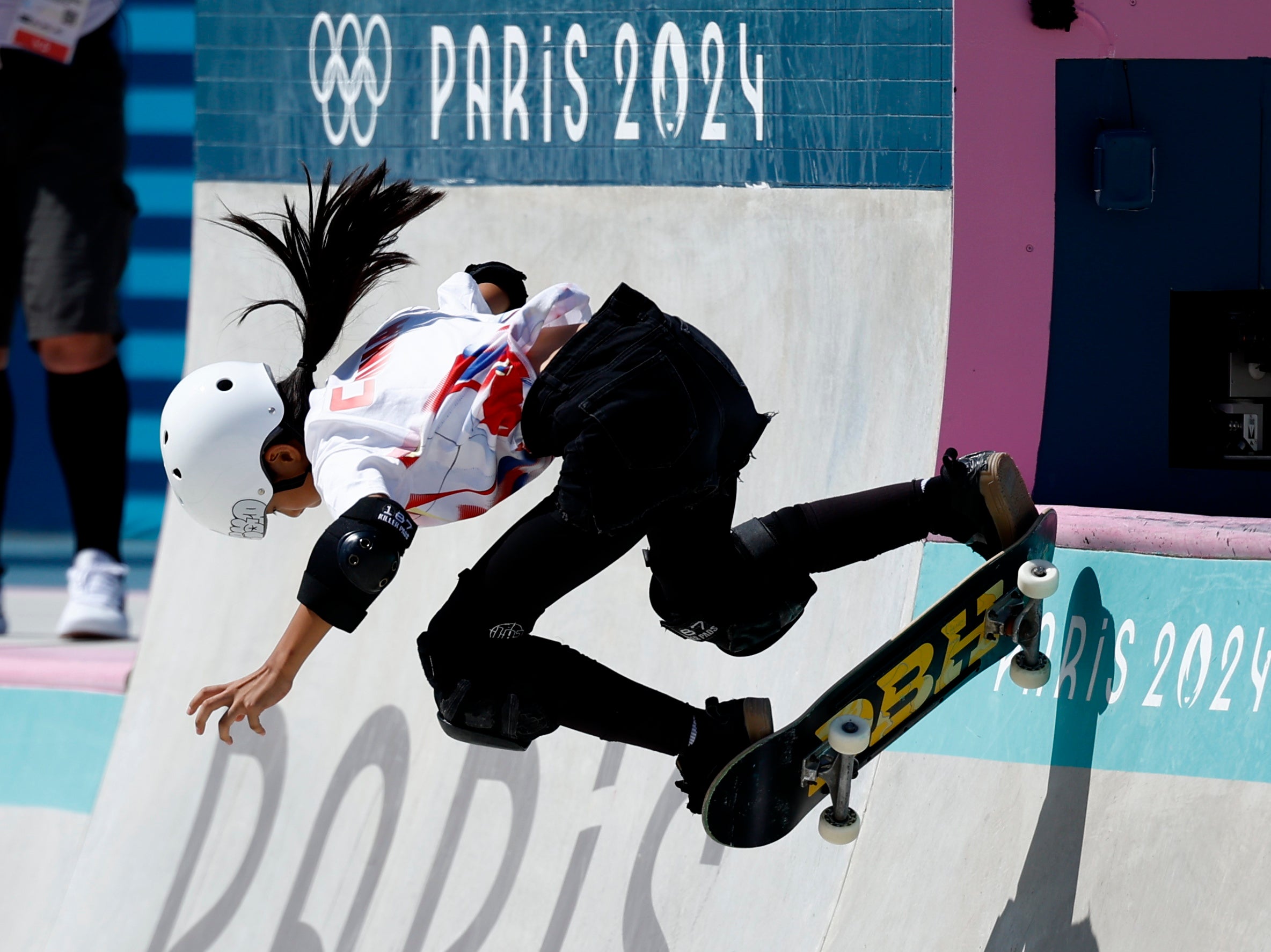The Independent's journalism is supported by our readers. When you purchase through links on our site, we may earn commission.
How young is too young to take part in the Olympics?
With children as young as 11 competing, Gemma Abbott wonders how the mental and physical exertion of the Games affects our most vulnerable athletes


It felt serendipitous this week that I’m in the middle of reading the great Andre Agassi’s autobiography Open, which begins with the multi-grand slam winner recounting his thoughts whilst practising on court at the age of seven: “I hate tennis, hate it with all my heart ... Wouldn’t that feel like heaven, Andre? To just quit? To never play tennis again?” he asks himself.
He continues: “But I can’t. Not only would my father chase me around the house with my racket, but something in my gut, some deep unseen muscle, won’t let me.”
Much of the first few chapters of the book are dedicated to Agassi’s intense feelings of hatred for tennis. Coaxed by his father to swing a racket whilst still in his cot, and forced to hit thousands of balls a day while in primary school, Agassi resented the constant pressure from his father who drove him to become a tennis prodigy. So intense was the resentment that the inner conflict it created – a life balanced precariously between self-destruction and perfectionism – grew to define him.
So my ears pricked up suddenly this week whilst listening to the commentary of the Olympic skateboarding. The competition was characterised by prodigious talent and extreme youth.
The youngest competitor – 11-year-old Zheng Haohao – was born on the penultimate day of the London 2012 Olympics, making her not only China’s youngest Olympian – but also the youngest in the Paris Games.
Zheng scored a best of 63.19 to finish 18th in the preliminary round – missing out on a final that was won by Australia’s Arisa Trew, 14. Having only taken up skateboarding at the age of seven, Zheng left France as one of the youngest Olympians of all time.
All three skateboarding medallists in Paris were teenagers: Team GB’s Sky Brown, 16, getting the silver and Japan’s Kokona Hiraki, 15, getting the bronze – a repeat of their podium finishes from the last Games.
This raises the question – what is their motivation for being there, for competing at sport’s highest level of competition?
There is no specific age limit to compete in the Olympics, according to the International Olympic Committee’s rules. However, there are guidelines set out by the IOC according to the athlete’s country of residence. The basic rule is an athlete must be over 16 years of age unless the country has decided to lower that minimum age. Many have – to just 13.
When I was about 13, I played a lot of tennis. I trained three times a week, competing at club and county level, and captaining the school tennis team. It meant I spent a lot of time at tennis clubs, where I witnessed a lot of questionable parental behaviour.
It was a fairly regular occurrence, in fact, to watch a friend’s father strike her several times on the back of the legs after a less-than-perfect training session with her coach. So regular was this physical abuse that I came to believe it was relatively normal for her to be spanked until her legs were raw at the side of the court.
That was back in the early Nineties. Things, I think, have changed. But – as evidenced by the torture Agassi describes – abuse doesn’t have to be physical. I suspect much of that kind of extreme “pushy parent” behaviour is alive and kicking still today.
For me, the question comes down to the difference between maturity of mind and body. They may be physically strong enough or talented enough to compete, but are they mentally capable of dealing with the pressure, fame, and crushing failure that come with competing at this level?
When I look at these kids, I can’t help but think – where does their drive to succeed come from? Does their ambition to be an Olympian come from them – at 11 or 12 years old? Or does it actually come from their parents?
I mean, can you remember what you wanted to be or do at 10 or 11 years old? That’s the last year of primary school. I know I was thinking about having fun with my mates – exploring makeup, riding my bike over to my best friend’s house and playing computer games.
I loved playing sports – any sport really, it didn’t matter what. And I knew I loved the feeling of winning. It felt good to win. But I didn’t want to be the best in the world. Not at 11. Being 11 is about having fun.
Having said that, if my parents had pushed me hard to be the best in the world when I was 11, I probably wouldn’t have fought them over it. At 11 you do what your parents tell you to do, don’t you? And that’s fundamentally the point: you have no choice at that age – no choice about anything really. Because, as a minor, you’re under the guardianship of your parents.
These kids may be great at skateboarding, or diving, or gymnastics, but do they really want all this?
For Agassi, the pressure to be the very best became so great that he ended up turning to drugs and alcohol to escape it. We live in different times now, where safeguarding is more openly discussed and monitored. Sadly, I believe the mental and physical exertion will take its toll, regardless of how much these kids are protected.






Join our commenting forum
Join thought-provoking conversations, follow other Independent readers and see their replies
Comments